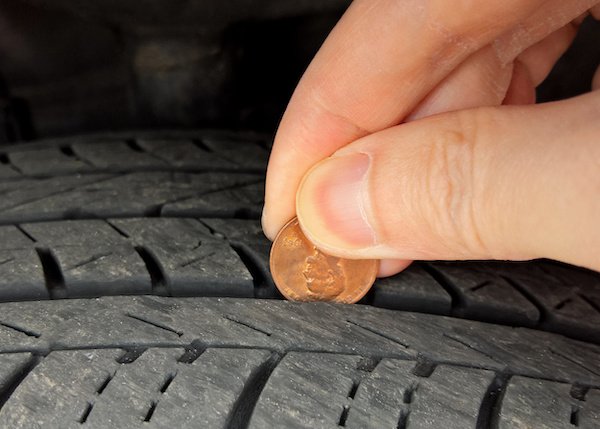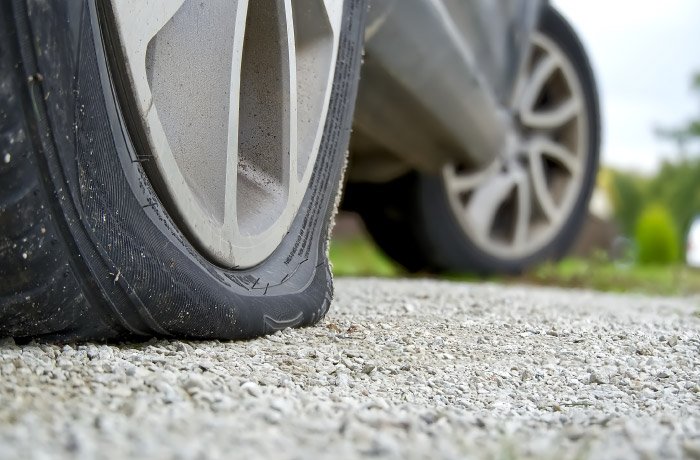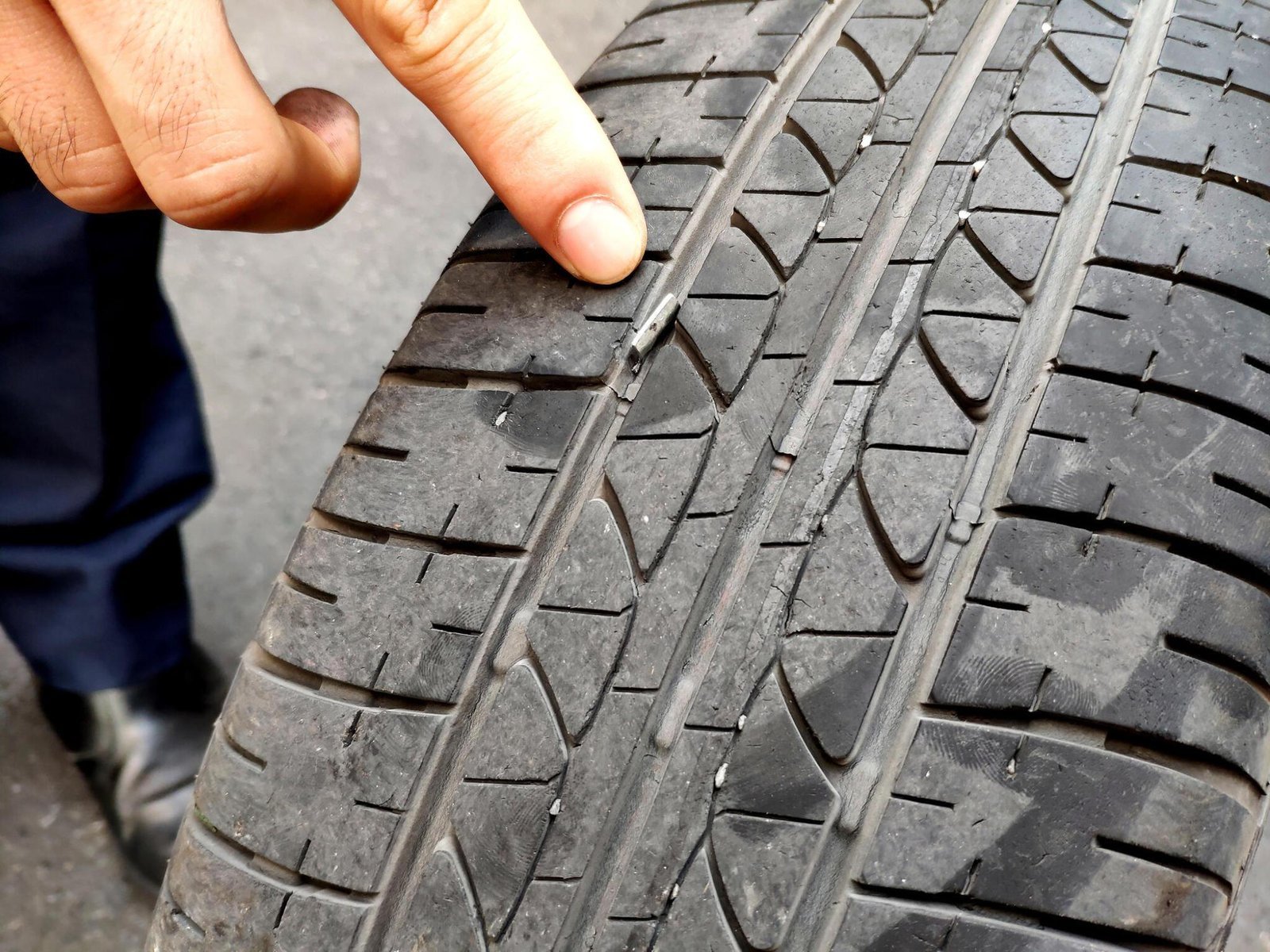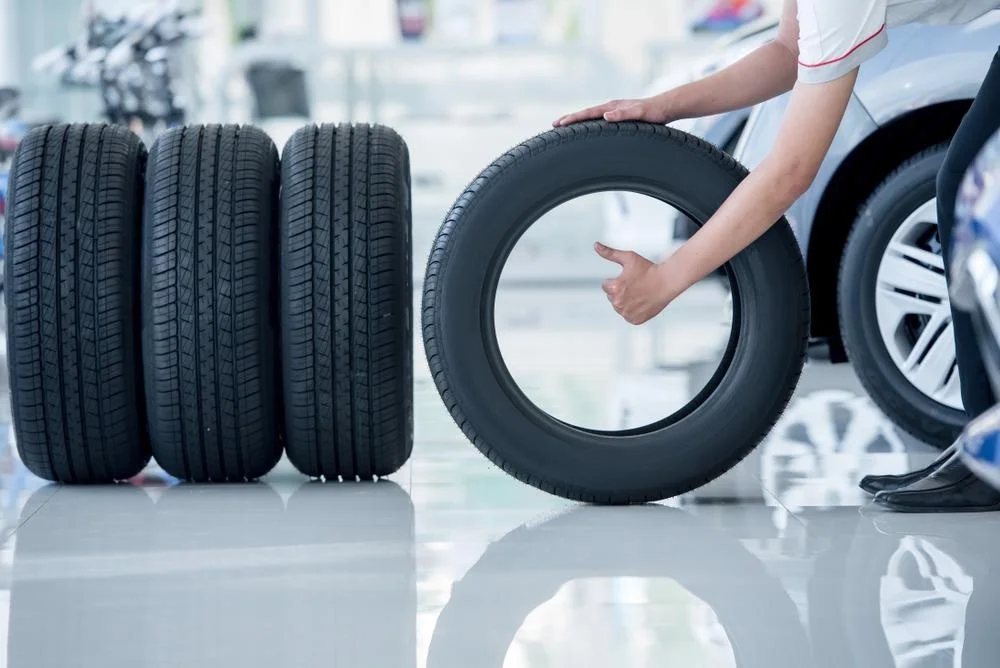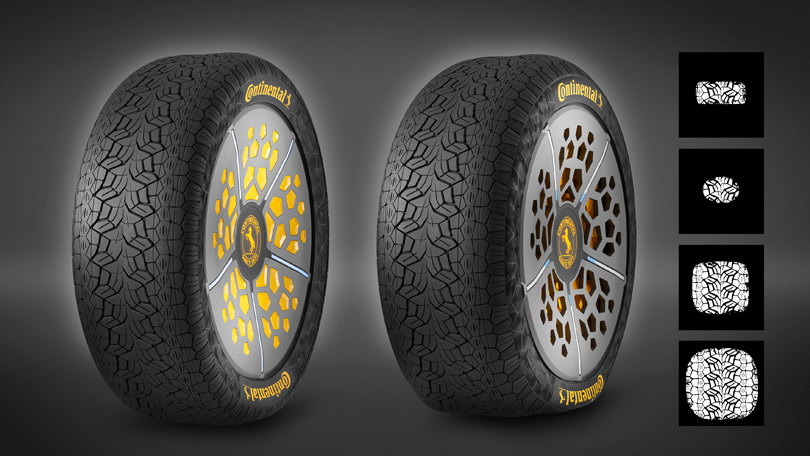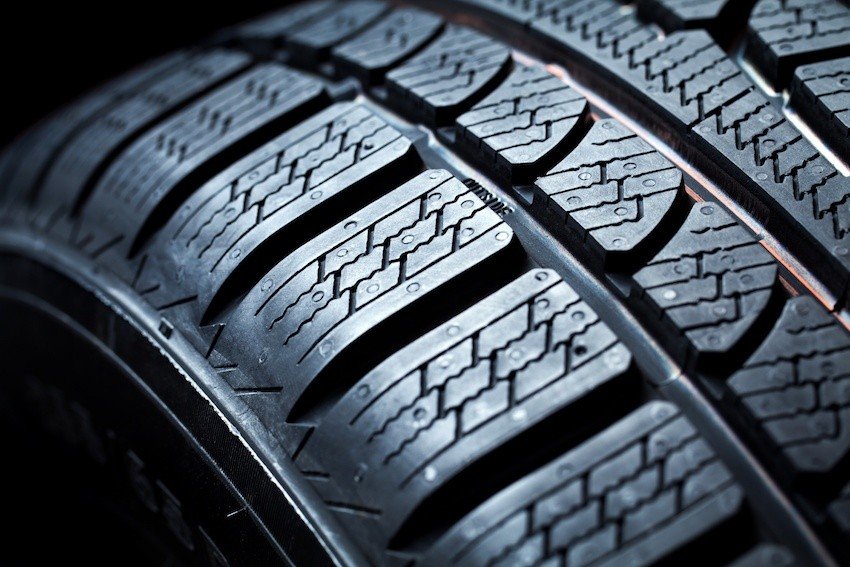Daniel Davidson, MD, MBA, DBA, PHD
Introduction:
Choosing the correct tires can make a big impact in this day and age when driving safety is the top priority. For a safe future on the road, impact-resistant tires are necessary for crossing hazardous terrain and enduring unforeseen challenges. Finding trustworthy and impact-resistant tires is important, and this article offers helpful advice for making wise decisions.
Understanding the Importance of Dependable Tires:
Reliable tires are essential for maintaining confidence and safety when driving. This is why they are necessary:
Stability:
Your car can maintain traction and grip on a variety of road surfaces thanks to the stability and control that reliable tires offer. Because traction might be hampered in inclement weather conditions like rain, snow, or ice, stability is especially important.
Durability:
Good tires are designed to survive daily driving conditions, such as bumps from potholes, debris, and uneven roads. Their sturdy design ensures lifespan and dependability by reducing the risk of punctures, sidewall damage, and tread degradation.
Performance:
A vehicle’s ability to handle, brake, and use fuel efficiently is enhanced by having reliable tires. They are made to operate as well as possible under a variety of driving circumstances, improving maneuverability and reactivity to make driving safer.
Safety:
Your tires’ state will determine how safe you and your passengers are. Reliability, skidding, and loss of control are all less likely with trustworthy tires that have the right amount of tread depth and pressure. By offering stability during abrupt movements or emergency braking, they enhance overall road safety.
Confidence:
Knowing that your car is prepared to tackle any obstacles on the road gives you confidence and peace of mind when you drive with dependable tires. Dependable tires provide you the confidence to drive securely and confidently whether you’re on the highway, in the city, or in off-road conditions.
Tips for Locating Dependable Tires:
Investigate Tire Brands:
Invest some time in learning about respectable tire companies that are well-known for their durability, quality, and safety features. Search for tire brands that have a track record of satisfied customers and are well-known in the market for making trustworthy tires.
Think About Tire Ratings and Reviews:
To learn more about the functionality and longevity of various tire models, consult internet databases and consumer review sites. To make an informed choice, consider the reviews, comments, and firsthand accounts from other drivers.
Speak with Automotive Experts:
Get advice from experts in the field, such as mechanics or tire specialists, who may offer knowledgeable suggestions depending on the kind of car you drive, your driving style, and your unique requirements. They can guide you through the many tire selections available and provide insightful advice.
Assess Performance Ratings:
Take note of the tread wear, traction, and temperature resistance performance ratings that the manufacturers have provided. These ratings might help you select the best tire for your driving conditions by indicating how well a tire performs in different situations.
Examine Warranty Coverage:
Learn about the extent of protection and assistance provided by reading through the warranty coverage provided by tire manufacturers. More assurance of quality and peace of mind may be obtained with a comprehensive warranty, especially when it comes to long-term performance and longevity.
Compare Prices and Value:
Although price is a significant consideration, take into account the total value that various tire options provide. To find the greatest deal for your money, compare prices from several retailers and take features, perks, and warranty coverage into account.
Evaluate Particular Needs:
When choosing tires, take into account your driving requirements and priorities. To maximize performance and enjoyment, select tires that meet your needs, whether they are for off-road capability, all-season performance, or fuel efficiency.
Go over the Installation and Maintenance Guidelines:
To make sure your chosen tires are handled, installed, and maintained properly, check the manufacturer’s installation and maintenance instructions. Tire life can be increased and long-term performance can be guaranteed by adhering to specified maintenance procedures.
Request Advice from Other Drivers:
Speak with loved ones, friends, or other drivers who have used the tires you are thinking about. First-hand accounts and personal recommendations can offer insightful information and support you in making a well-informed choice.
Trust Your Instincts:
In the end, while choosing tires for your car, follow your gut and intuition. Based on your research, professional guidance, and personal preferences, if a tire feels appropriate for you, it’s probably a good option for your driving requirements.
Factors to Consider When Choosing Impact-Resistant Tires:
Many aspects need to be considered when selecting impact-resistant tires in order to guarantee both best driving performance and road safety. These elements consist of:
Tread Pattern and Sidewall Design:
Assess the tire’s construction, taking into account the materials utilized. Durable rubber compositions that can resist cuts and punctures are common features of impact-resistant tires, as are strengthened sidewalls.
Sidewall Strength:
Robust sidewalls are necessary to withstand hits from road debris, curbs, and potholes. Seek tires with strong sidewall structure, such as those that include extra rubber or other material layers for reinforcement.
Tread Design:
On a variety of road surfaces, the tread pattern is essential for traction and grip. Select tires with aggressive tread patterns that will protect you from accidents and punctures while yet enhancing traction.
Impact Cushioning Technology:
To lessen the chance of damage, several tire manufacturers include unique technology in their tires that absorb and distribute impact energy. In the tire construction, look for features like impact cushioning or compounds that absorb shock.
Load Capacity:
Take into account the tires’ load capacity to make sure they can carry the weight of your car plus any extra passengers or baggage. Tire overloading raises the possibility of impact damage and early tire wear.
Performance Ratings:
Keep an eye out for ratings related to temperature resistance, treadwear, and traction. These ratings offer insightful information about the tire’s dependability and appropriateness for various driving scenarios.
Warranty Coverage:
In order to obtain additional protection against flaws or damage, inquire about the warranty coverage provided by tire manufacturers. To fully benefit from the guarantee, be aware of its terms and limitations.
Tire Safety Features:
Tire safety features comprise an array of technological advancements and developments intended to augment the roadworthiness and safety of tires. By minimizing the impact of tire-related mishaps and lowering the probability of accidents, these elements seek to enhance overall driving safety. Typical tire safety features include the following:
Run-flat technology refers to the tire’s ability to withstand deflation even after a puncture. This device gives drivers the chance to get to a safe place or repair facility without having to change their tire right away by allowing cars to drive for a certain distance at a slower speed.
Self-Sealing Tires: Self-sealing tires have an internal sealant or lining that instantly seals tiny punctures as they happen. By maintaining tire pressure and preventing air loss, this lowers the possibility of abrupt deflation and improves overall road safety.
Tire Pressure Monitoring Systems (TPMS):
These electronic devices keep track of tire pressure and notify drivers when there is a noticeable departure from the recommended pressure specifications. TPMS can reduce tire blowouts, increase fuel economy, and extend tire life by identifying under- or over-inflation early on.
Enhancements to Traction and Grip:
To increase traction and grip on a variety of road surfaces, tire compounds, siping patterns, and advanced tread designs are used. Especially in inclement weather like rain, snow, or ice, these characteristics improve the vehicle’s stability, agility, and braking capability.
Tires featuring reinforced sidewalls are more resilient and long-lasting, which lowers the possibility of sidewall damage from potholes, curbs, or other debris on the road. This characteristic improves overall safety and dependability by preventing unexpected failures and assisting in maintaining tire integrity.
Anti-Hydroplaning Technology:
To lessen the chance of hydroplaning on wet roads, certain tires have unique channels and grooves built into them to remove water off the tire’s contact patch. Anti-hydroplaning technology improves driving stability and control in wet circumstances by enhancing water dispersion and retaining traction.
Heat-Resistant Materials:
To endure the high temperatures produced during high-speed driving, high-performance tires may be constructed using heat-resistant materials and processes. By preventing tire deterioration and failure, this helps maintain tire performance and safety in harsh environments.
Environmental Considerations
The automotive industry is becoming more conscious of sustainability and eco-friendliness, which is reflected in the importance of environmental factors while choosing tires. Here are some important things to think about:
Eco-Friendly Materials:
Seek tires composed of natural rubber from rubber plantations that are sustainably and renewablely handled. Additionally, look into bio-based or recycled rubber compounds as alternatives to conventional petroleum-based materials.
Energy Efficiency:
Take into account tires made with increased fuel efficiency, since these can help cut down on greenhouse gas emissions and fuel usage over the course of a vehicle’s lifetime. Seek tires that reduce energy waste during driving, such as those with minimal rolling resistance, optimal tread patterns, and cutting-edge materials.
Diminished Environmental Impact:
Assess the effects of tire manufacturing and disposal on the environment, taking into account variables including resource usage, emissions, and waste production. Select tires from producers who are dedicated to environmentally friendly packaging, recycling programs, and effective production techniques.
Extended Tread Life:
Choosing tires with a longer tread life will help cut down on waste production and the frequency of tire changes. Extended mileage and resource conservation are two benefits of high-quality tires with robust tread compounds and cutting-edge tread patterns.
End-of-Life Solutions:
Take into account tire end-of-life management, which includes alternatives for recycling, reusing, or retreading worn tires. Seek out tire producers or suppliers who provide extensive tire recycling schemes or who endorse projects aimed at recycling tire components for alternative uses, such asphalt pavement or playground surfaces.
Environmental Certifications:
Look for tires that have received certification from reputable environmental bodies or eco-labels, which signify adherence to strict requirements for environmental performance, energy efficiency, and sustainability. Seek certifications like the Nordic Swan or Blue Angel eco-labels, or the ISO 14001 environmental management standard.
Encourage tire producers who put an emphasis on environmentally friendly practices at every stage of their supply chain, from sourcing raw materials to manufacturing procedures, distribution techniques, and waste management plans. Select businesses who have open sustainability practices and are dedicated to lessening their environmental impact.
Comparative Analysis
In order to determine the advantages, disadvantages, and suitability of several solutions for a given set of requirements or preferences, comparative analysis compares possibilities methodically. When it comes to choosing tires, It means comparing several tire models according to important criteria including pricing, performance, durability, and user reviews. Through comprehensive analysis, customers may make informed decisions that are in line with their needs and priorities.
Important Pointers for Comparative Analysis:
Performance:
Evaluate the traction, handling, braking, and stability performance traits of various tire models. To ensure the best performance in a variety of driving circumstances, take into account elements like wet and dry grip, cornering ability, and general responsiveness.
Durability:
Consider tread wear rating, tread pattern, and construction materials when assessing the longevity and durability of tires. Seek for tires that have a reputation for being resilient and long-lasting.
Price:
Evaluate the affordability and value for money of various tire models by comparing their costs. Take into account other costs, such as replacement and ongoing maintenance, in addition to the purchase price.
User Reviews:
Look for comments and reviews from other customers who have purchased the tire models you are thinking about. To learn about performance and dependability in the real world, read reviews—both good and bad.
Consider the standing and performance history of tire brands and manufacturers within the sector. More assurance and confidence in your buying choice may be provided by well-known brands with a track record of excellence and dependability.
Check to see if the tire models you are thinking about are available in the right size and meet the necessary requirements for your car. Make sure it’s compatible with the make and model of your car to prevent incompatibilities or inconsistent performance.
Warranty Coverage:
Examine the conditions, duration, and coverage for defects or premature wear of the warranties provided by tire manufacturers. Recognize the limitations of the warranty and any exclusions that could be relevant.
Long-Term Value
In order to make an informed investment when selecting tires, long-term value must be taken into account. Why long-term value important and how to assess it are explained here:
Tread Life:
Good tires can endure more miles before needing to be replaced, so they usually have a longer tread life. Long-term cost savings can be achieved by purchasing tires with superior tread life because they will require fewer replacements.
Fuel Efficiency:
Some tires are made with a lower rolling resistance in mind to increase fuel efficiency. Even while these tires would cost more up front, they might eventually save fuel costs, so in the long run, they’re a wise investment.
Durability:
Tires with greater resilience to wear and damage have a longer lifespan and are more dependable. In the long run, choosing tires with a reputation for durability can save you money by reducing the need for repairs and replacements.
Reliability in Traction, Handling, and Braking:
Over the course of their lives, premium tires frequently exhibit consistency in their performance. In addition to making driving safer, consistent performance lowers the possibility of unforeseen tire-related costs.
Guaranteed Protection Against Defects and Premature Wear:
A lot of tire manufacturers issue warranties. In order to maintain peace of mind in the event of unforeseen complications, it can be helpful to understand the terms and duration of warranty coverage while evaluating the long-term worth of tires.
Resale Value:
As they improve performance and safety overall, high-quality tires can raise the value of your car when you decide to sell it. When the time comes to trade in or sell your car, well-kept tires will draw in more purchasers and fetch a better price.
Total Cost of Ownership:
Take into account variables including the purchase price, upkeep expenses, fuel savings, and probable repairs or replacements when assessing your tire selections. You may make well-informed judgments that fit your driving needs and budget by considering the tires’ long-term worth from an integrated perspective.
Conclusion:
Finding trustworthy and impact-resistant tires is essential to guaranteeing security and safety when driving. Drivers can choose the right tires for their cars by giving consideration to qualities like grip, durability, load capacity, and performance ratings. Important elements in the tire choosing process include talking to professionals, investigating reliable brands, and taking particular driving requirements into account. All drivers will ultimately drive safer and feel more confident when they purchase high-quality tires and follow routine maintenance procedures. Drivers may travel the road with assurance and peace of mind by choosing and maintaining their tires proactively, opening the door to a safer driving future.

